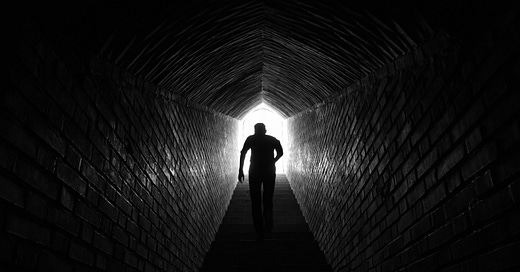In our quest for a better future, we often find ourselves oscillating between two extremes: blind optimism and radical hope.
On one end, absolute optimism paints an idealised, rose-tinted picture of the world, dismissing challenges and potential setbacks.
Conversely, radical hope emerges from adversity, clinging to the possibility of transformation even in the face of seemingly insurmountable odds.
Navigating this spectrum requires a delicate balance that embraces the power of hope while remaining grounded in reality.
Blind optimism, while alluring in its simplicity, can be a dangerous trap.
It encourages us to disregard the complexities of life, ignoring the systemic issues, injustices, and obstacles that stand in our way.
This naive outlook can lead to complacency, inaction, and a false sense of security, ultimately hindering our ability to effect meaningful change.
Moreover, when faced with inevitable challenges, unquestioning optimism can crumble, leaving us ill-equipped to cope with adversity and disillusioned by our unrealistic expectations.
At the opposite end of the spectrum lies radical hope, a defiant stance against the seemingly impossible.
A deep-seated belief in the possibility of transformation fuels this hope as it rises from the ashes of despair.
Radical hope drives social movements, scientific breakthroughs, and personal triumphs against all odds. It is a rebellious act, challenging the status quo and daring to envision a reality that transcends the limitations imposed by current circumstances.
If taken to an extreme, radical hope can become detached from reality, leading to escapism or fanaticism. While it is essential to maintain hope in the face of adversity, it is equally crucial to ground that hope in a clear-eyed understanding of the challenges at hand.
Refrain from acknowledging and confronting the complexities of a situation to avoid misguided efforts and a perpetual cycle of disappointment.
The path forward lies in balancing these two extremes and embracing grounded hope.
This equilibrium requires us to confront reality head-on, acknowledging the obstacles and complexities that stand in our way while simultaneously cultivating a steadfast belief in the possibility of positive change.
It demands that we remain vigilant and proactive, taking tangible steps to address our challenges while maintaining an unwavering commitment to our vision of a better future.
Grounded hope is not a passive state but an active, dynamic force that propels us forward. It requires us to continuously adapt, learn, and evolve, adjusting our strategies and approaches as circumstances dictate.
A resilient mindset allows us to weather setbacks and disappointments without losing sight of our ultimate goals.
In pursuing grounded hope, we must embrace curiosity, humility, and a willingness to learn from diverse perspectives. We can develop more nuanced and practical solutions by engaging with different worldviews and seeking to understand the root causes of our challenges.
This open-mindedness allows us to transcend the limitations of unquestioning optimism and radical hope, forging an aspirational path grounded in reality.
The journey towards a better future is a delicate dance between hope and pragmatism, between daring to dream and confronting harsh realities.




